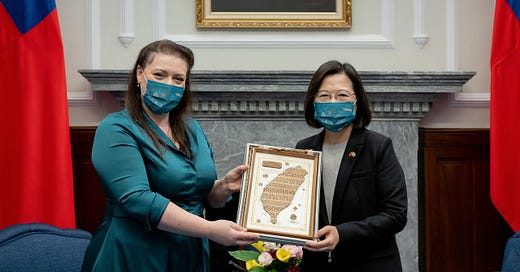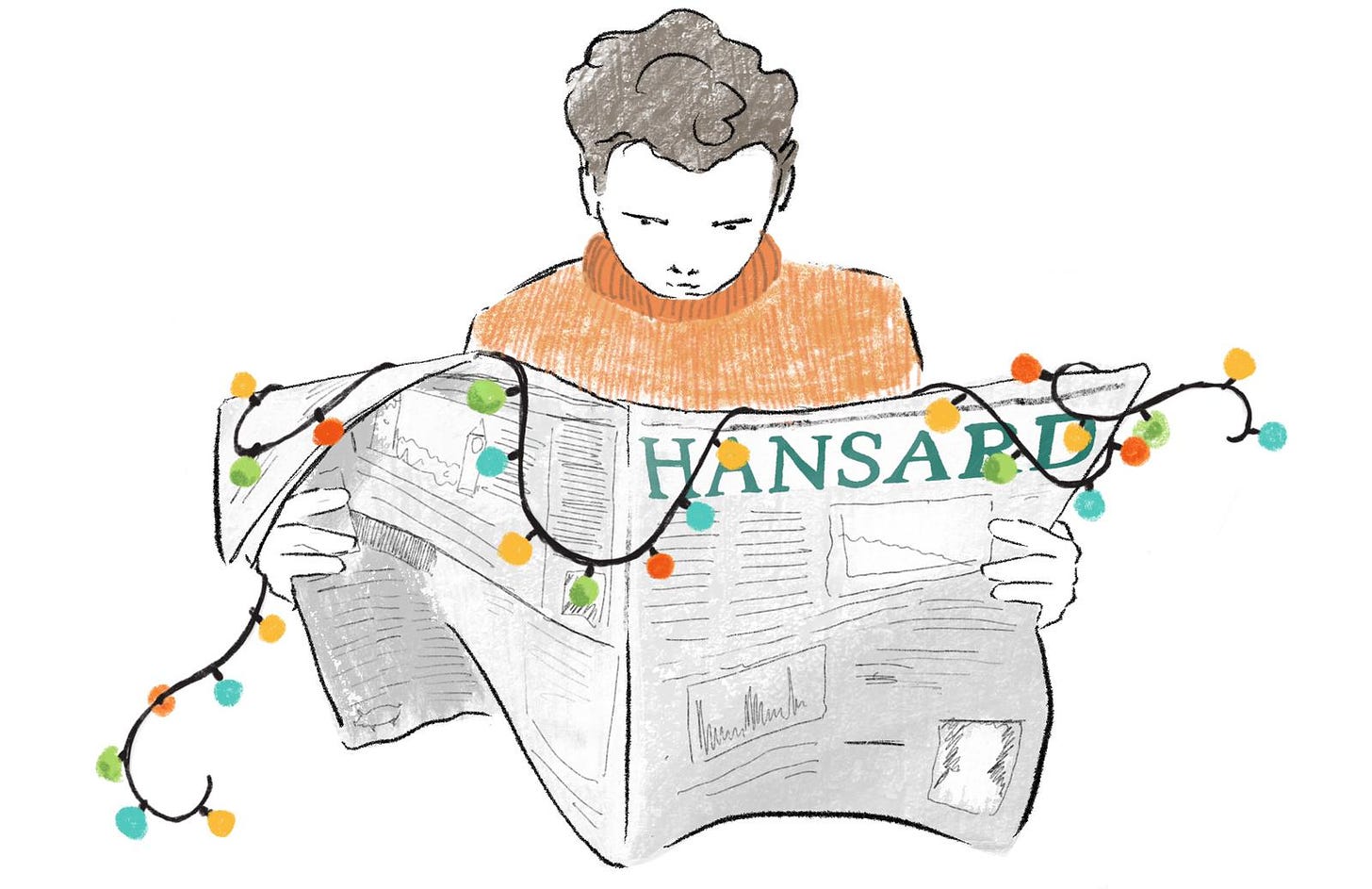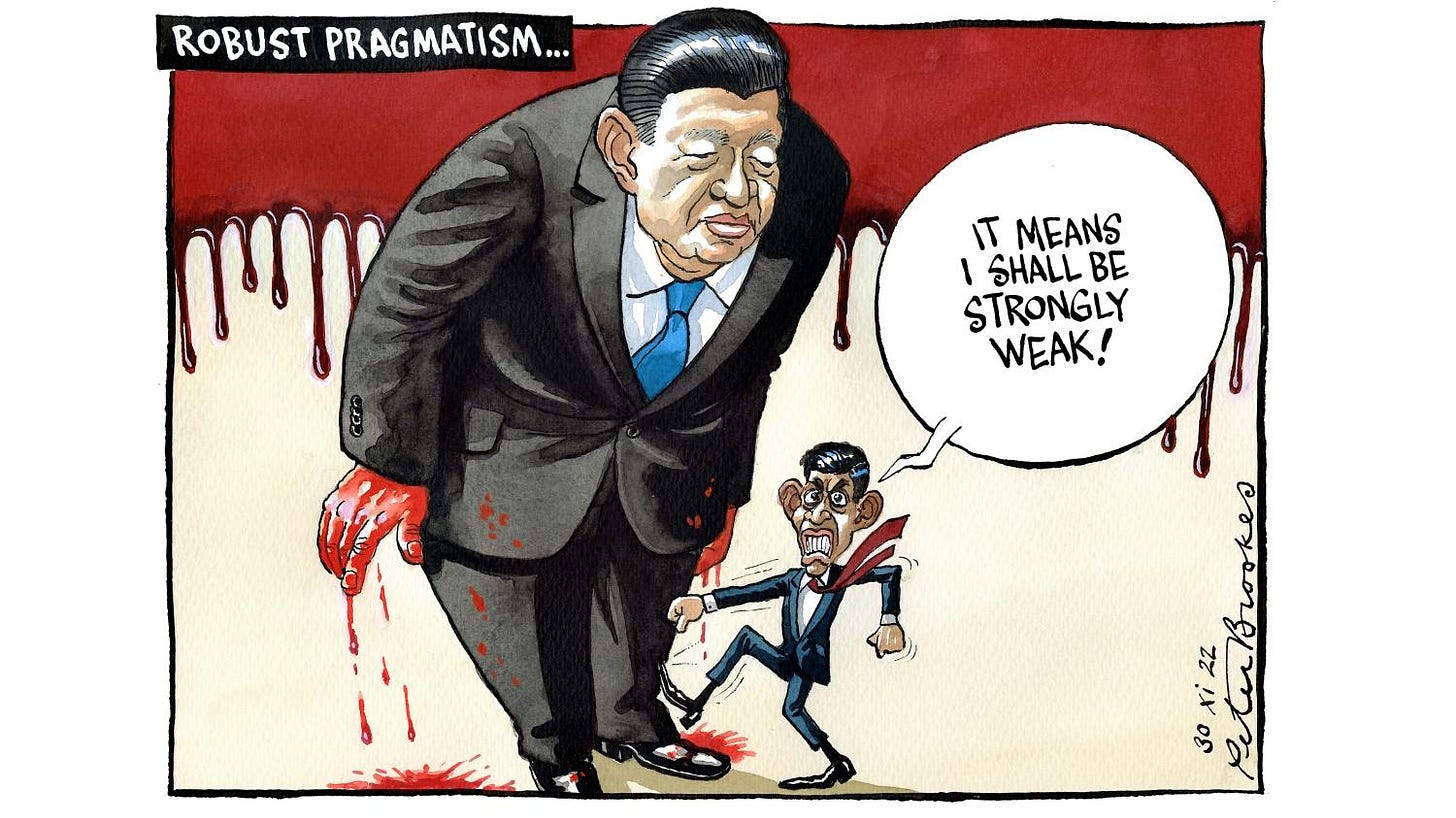MPs in Taiwan, BBC journalist arrested, Chinese nuclear firm removed
A Beijing to Britain briefing
Hello-ho-ho,
On Monday, Prime Minister Rishi Sunak set out his current vision for Britain’s foreign policy under his premiership. “Robust pragmatism” is the order of the day. The speech was a Rorschach test for revealing individuals' positions on UK-China relations and the capabilities of Downing Street.; what it ultimately means in practice will become clearer when the Integrated Review refresh is published. While this was originally scheduled to come out before Christmas year, I’ve been told that it joins a number of other strategies now likely to be published in the spring of 2023, possibly in March.
Some six thousand miles away, Parliament’s Foreign Affairs Committee has spent the week in Taiwan. On the agenda? Indo-Pacific stability, technology, supply chain security and democratic resilience. The visit overlapped with local elections across the island this week, so I asked an analyst on the ground - Scott Singer, Co-founder and director of the Oxford China Policy Lab - for three key takeaways for British policymakers and their researchers.
In his view, here’s what Westminster needs to know:
The Kuomintang (KMT) crushed the Democratic Progressive Party (DPP) in Taiwan’s local (9+1) elections, winning around 2/3 of county and city chief post seats.
Although the KMT is generally seen as relatively pro-engagement with the PRC compared to the DPP, local election outcomes reflect a completely different set of considerations, such as perceptions of the quality of domestic governance, the ability to mobilise patronage networks, and scandals on both sides, including one around plagiarism. So the success of the KMT in local elections says little about cross-Strait relations and much more about how responsive the government is to their concerns and how well-connected candidates are within their communities.
While voters may not have chosen candidates based on cross-Strait issues, the largest implications for cross-Strait relations are that some politicians now find their intra-party status and overall visibility changed. Successful KMT candidates such as Chiang Wan-An, grandson of Chiang Kai-Shek, who won the Taipei mayor election, will see a boost to their 2024 odds.
— Sam Hogg, Editor
Gift someone an annual subscription to Beijing to Britain this Christmas.
Order! Order!
Some of the more eye-catching questions and tweets from Westminster dwellers this week
Siobhan McDonagh (Labour, IPAC) asked “the Secretary of State for Business, Energy and Industrial Strategy, in the context of Octopus Energy's takeover of Bulb, what assessment he has made of the implications for his policies of Octopus Energy’s commercial links with the China Electronics Corporation.”
Simon Clarke (Conservative) tweeted “Germany’s almost unbelievable naivety/cynicism (take your pick) and unwillingness to recognise the true nature of both the Russian and Chinese regimes is perhaps the single worst aspect of modern Europe.”
Politics
A mixed reception
Reactions to the Prime Minister’s speech
To compete and challenge China, positioned Prime Minister Rishi Sunak, the United Kingdom “can’t depend on Cold War arguments or approaches, or mere sentimentality about our past”, but instead must “make an evolutionary leap in our approach.” This evolutionary leap “means delivering a stronger economy at home, as the foundation of our strength abroad” and “standing up to our competitors, not with grand rhetoric but with robust pragmatism.” What does this actually mean? Here’s the basic split in opinion:






